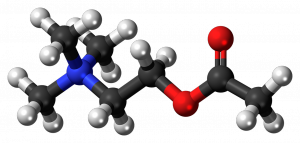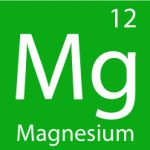Magnesium is the most valuable mineral in your body and is responsible for literally thousands of functions.
Because a lot of its work occurs at a mainly cellular level, just how magnesium benefits your body is often overlooked and thus, magnesium levels are often found to be insufficient and this leads to magnesium deficiency.
It does so much in the body, but we haven’t heard much about it.
Listed below are some very important magnesium benefits, without which, we would be in all sorts of trouble.
Bone Strength
Magnesium supports the function which causes the formation of osteoclasts and osteoblasts – the building blocks of new bone. So magnesium actually leads us to having a stronger and more dense skeletal system. In promoting new bone formation while decreasing the rate of bone degeneration magnesium has an important role in preventing the onset and severity of osteoporosis.
Healthy Heart
After the skeleton, the biggest concentration of magnesium found in the body is in the heart, and specifically in the left ventricle. The heart is a muscle and the magnesium release which is triggered by a contracting muscle works to relax the muscle. Therefore magnesium assists the heart to beat in a regular rhythm by relaxing it in between each spasm (beat). Without magnesium, and with a spasming heart muscle, you have a heart attack.
Maintaining Normal Blood Pressure
Magnesium has a relaxing effect on the muscles. It also relaxes the smooth walls of the blood vessels which causes vasodilation or widening of the vessels. With this effect, the pressure of the blood decreases so magnesium regulates blood pressure.
Muscles
Calcium is the mineral responsible for muscle contractions and consumers take thousands of milligrams of this daily without the corresponding amounts of magnesium. Calcium needs magnesium in order to have normal muscle function of contraction and relaxation. This is why one of the classic symptoms of magnesium deficiency is actually muscle cramping and spasms.
 Enzyme Activation
Enzyme Activation
Enzymes work within our body and especially our digestive system to break down molecules of fat, cholesterols and sugars among other things. Magnesium in instrumental in sending the messages to these enzymes so they will start and stop their important functions and has been implicated in over 3700 enzymatic functions throughout the body.
Stabilises DNA and RNA
Have you heard of DNA? It’s basically the entire foundation of our beings. Magnesium operates here by assisting in stabilising the structures of DNA cells and repairing any damage to cells. Magnesium also helps in facilitating the formation of new cells at the right rate of multiplication and sufficient amounts will make new cells mature properly rather than proliferate indiscriminately and cause tumours.
Balancing the Electrolytes
The big 4 electrolytes are magnesium, calcium, sodium and potassium and the body is constantly working hard in order to maintain these 4 in perfect harmony. One of the functions of magnesium is to make the passage of these mineral molecules back and forth across the intracellular membrane in order to keep this balance somewhat easier by providing the energy to do so.
Energy
ATP is the energy powerhouse within cells and it is what gives us the energy we need to carry out our day to day activities. Magnesium is needed to break down dietary sugars and carbs into usable molecules which become our ATP (otherwise known as adenosine tri-phosphate.) It is no accident that one of the major identifiable symptoms of magnesium deficiency is fatigue and lack of energy due to low levels of ATP caused directly by insufficient magnesium.
Magnesium and energy are inextricably linked.
Read more about it.
Sleep
Magnesium is one of the most important ingredients required for a good night’s sleep. It activates the neurotransmitters that produce hormones that make us feel nice such as serotonin. If we have serotonin flowing through our bodies we feel relaxed and comfortable and happy and able to sleep much better. It is in this way that magnesium also reduces anxiety by flooding your system with feel good hormones.
Magnesium does so much in your body but yet we know so little about it.
Learn more here:
Signs and Symptoms of Magnesium Deficiency

